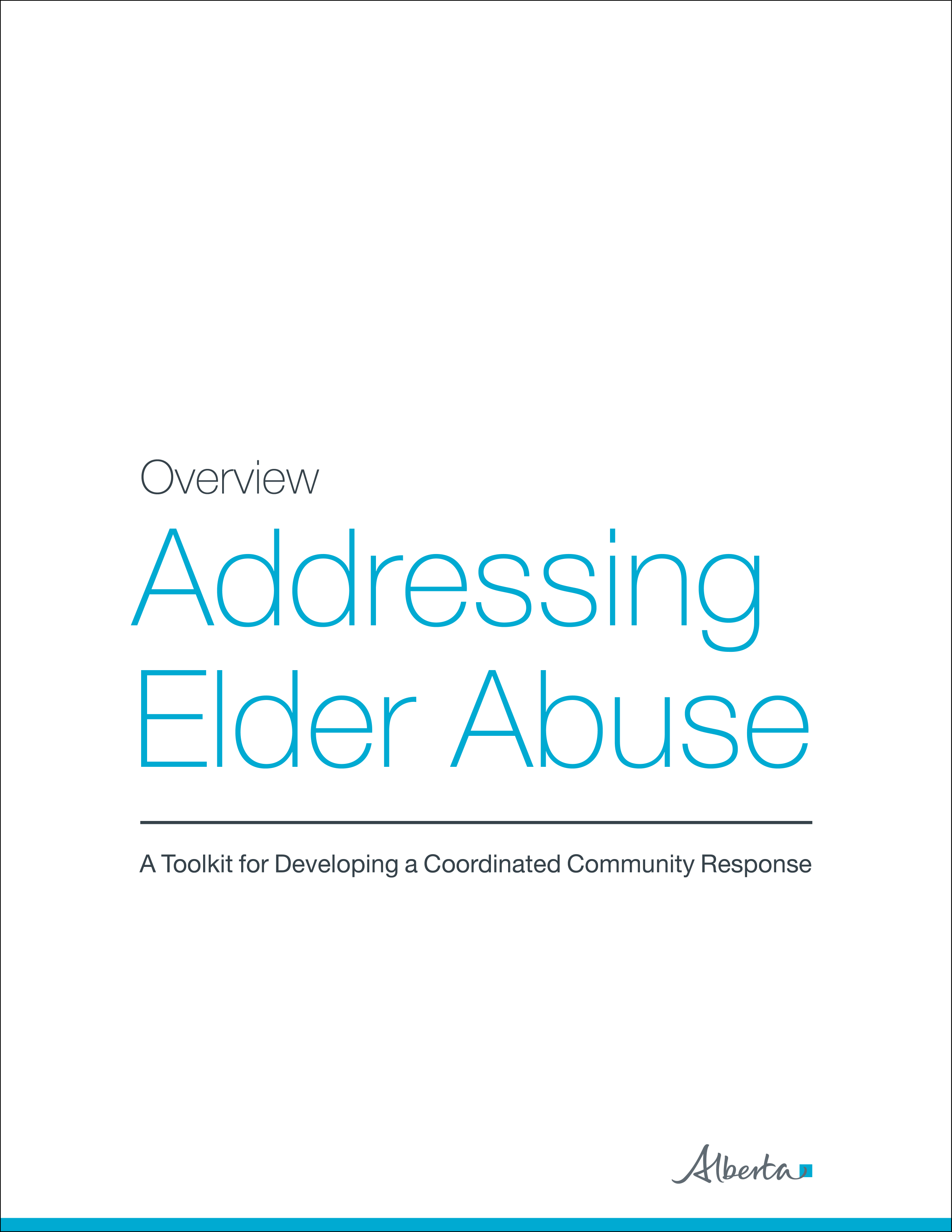 The Government of Alberta has released Addressing Elder Abuse: A Toolkit for Developing a Coordinated Community Response to help communities develop a framework to address elder abuse at the local level.
The Government of Alberta has released Addressing Elder Abuse: A Toolkit for Developing a Coordinated Community Response to help communities develop a framework to address elder abuse at the local level.
This toolkit is intended to help build a community-specific, multi-disciplinary approach to addressing elder abuse. It provides a five-step process that communities, civil society organizations and individuals can use to develop a local coordinated community response (CCR) approach to address elder abuse.
Who is this toolkit for?
- Seniors centres
- Community organizations
- Police and victim services
- Health service providers
- Housing providers
- Organizations servicing Indigenous, LGBTQ and new Immigrant communities
- Anyone interested in addressing elder abuse in their community
This eight-page summary provides an overview of the characteristics of a Coordinated Community Response and of the five-step process.
Toolkit:
You can access the toolkit here.
Evaluation of the work
In 2020, Alberta Seniors and Housing evaluated the CCR model and created two resources - an infographic and a fact sheet - to share information on this promising practice in Alberta. You can access both here (click on the resource to view and download):
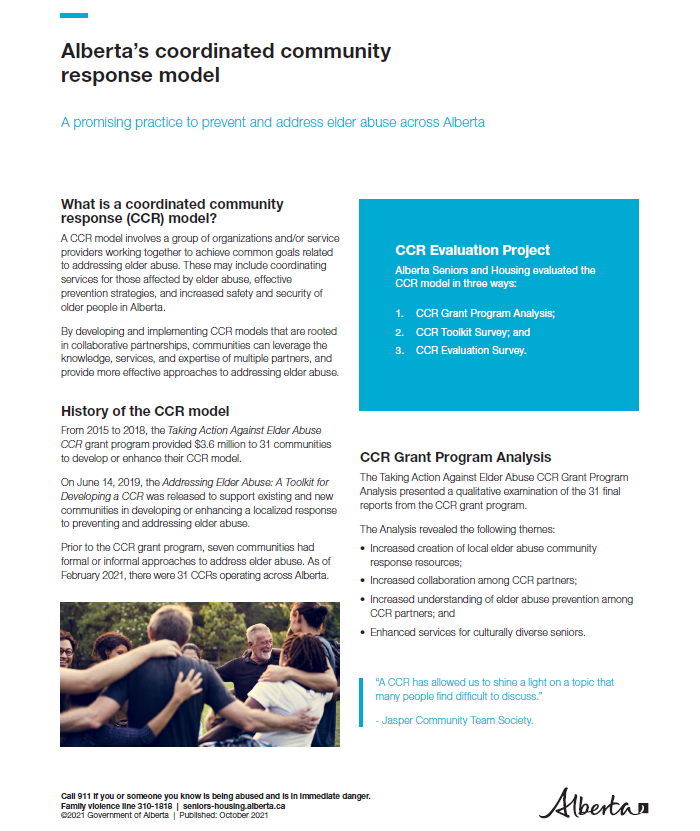
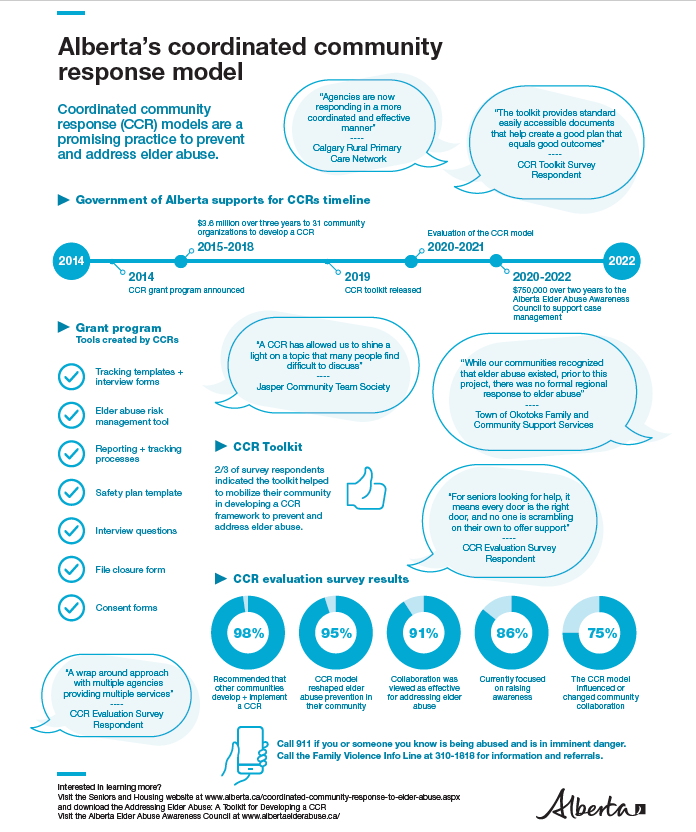
Source: Government of Alberta
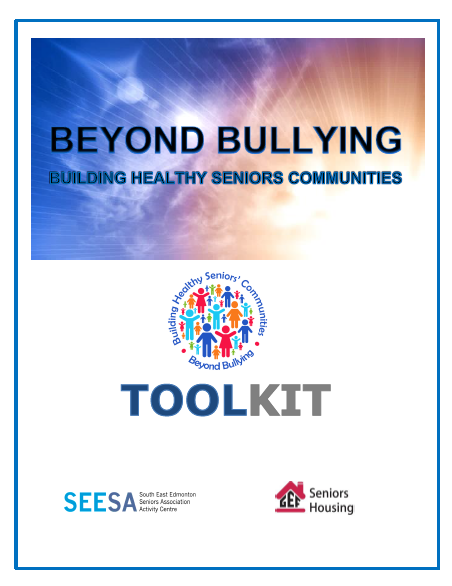
''This is a made-in-Alberta community development project, by seniors, for seniors. The South East Edmonton Seniors Association Activity Centre’s (SEESA) mission is “To provide programs and services that will help seniors maintain and enhance their quality of life”. The mission at Greater Edmonton Foundation (GEF) Seniors’ Housing is “Leaders in friendly, affordable, secure housing and services for seniors”.
In 2011, when local residents noted disturbing behaviours in their seniors’ housing, they designed a presentation to identify and talk about bullying behaviour with other seniors and the larger community. SEESA supported the development of a program to address this complex problem. Three years later the Government of Canada’s New Horizon’s for Seniors program and GEF Seniors’ Housing partnered with SEESA staff and volunteers to further develop this program.
A program and tookit have been developed to help prepare seniors for communal living, negotiate healthy relationships, and explore ways to meet the immediate needs of both those who suffer the effects from bullying behaviours, and those who use bullying behaviours. We invite you to watch the Beyond Bullying: Building Healthy Seniors’ Communities video (below). We welcome feedback from anyone who has watched the video, attended a presentation or participated in a workshop to assist us with improving the Beyond Bullying program.''
VIDEO:
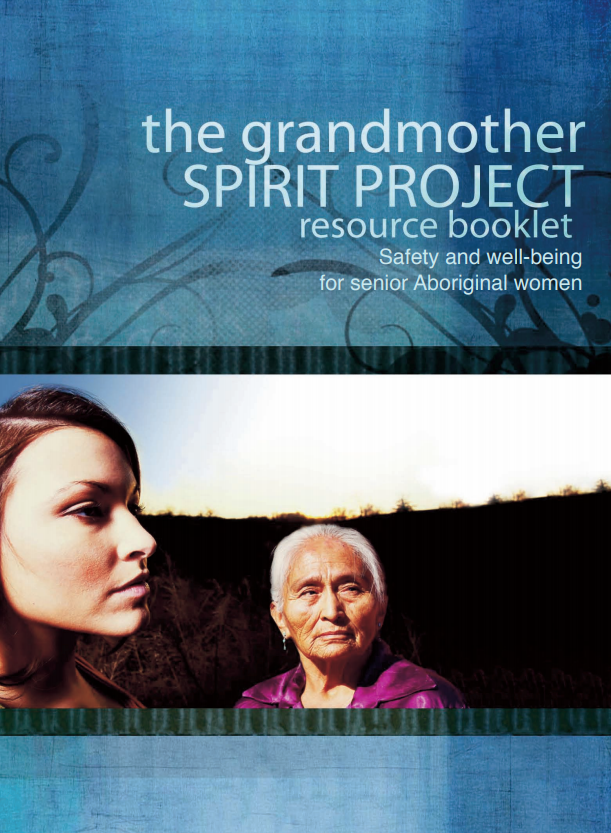
All of the materials developed from the Grandmother Spirit project are grounded in the knowledge shared by the Grandmothers and the project Advisory Committee. For more information on the project, go to www.nwac.ca or contact the Native Women’s Association of Canada at 1-800-461-4043.
Source: Native Women’s Association of Canada
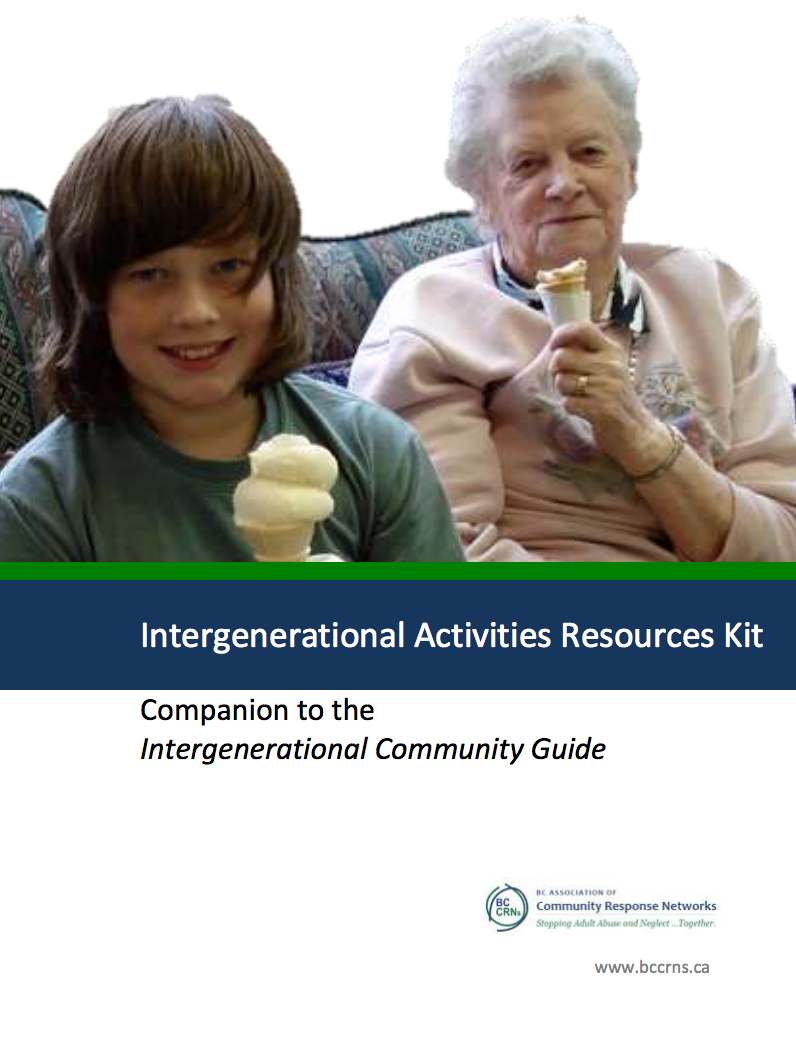 "This guide supplements the Intergenerational Community Guide and provides:
"This guide supplements the Intergenerational Community Guide and provides:
- A suggested approach to conducting an intergenerational workshop, should your CRN be interested in presenting one.
- A starting point for generating ideas for projects in your CRN.
- Suggestions on age-appropriate/stage appropriate intergenerational activities.
- Short stories – called Reflection Points – to illustrate intergenerational theory and concepts, and generate further discussion and thinking.
- Lists of resources where you can find more information.
NOTE: It’s Not Right! is referenced throughout this document. This training is not a prerequisite for intergenerational work.
How to Use this Guide Use this guide:
- To jumpstart your workshop planning, if a workshops is something your CRN wants to do.
- As a starting point for any intergenerational presentations your CRN may want to do.
- For inspiration on any intergenerational activities your CRN may want to pursue
All recommendations in this document and the intergenerational resources cited have been field-tested. Please select only the ideas that will work for your community.
Who this Guide is For?
- Mentors.
- Coordinators.
- Other affiliated community groups."
The Intergenerational Community Guide, Intergenerational Activities Resources Kit, and supplementary materials were funded by the BC Association of Community Response Networks (BC CRN).
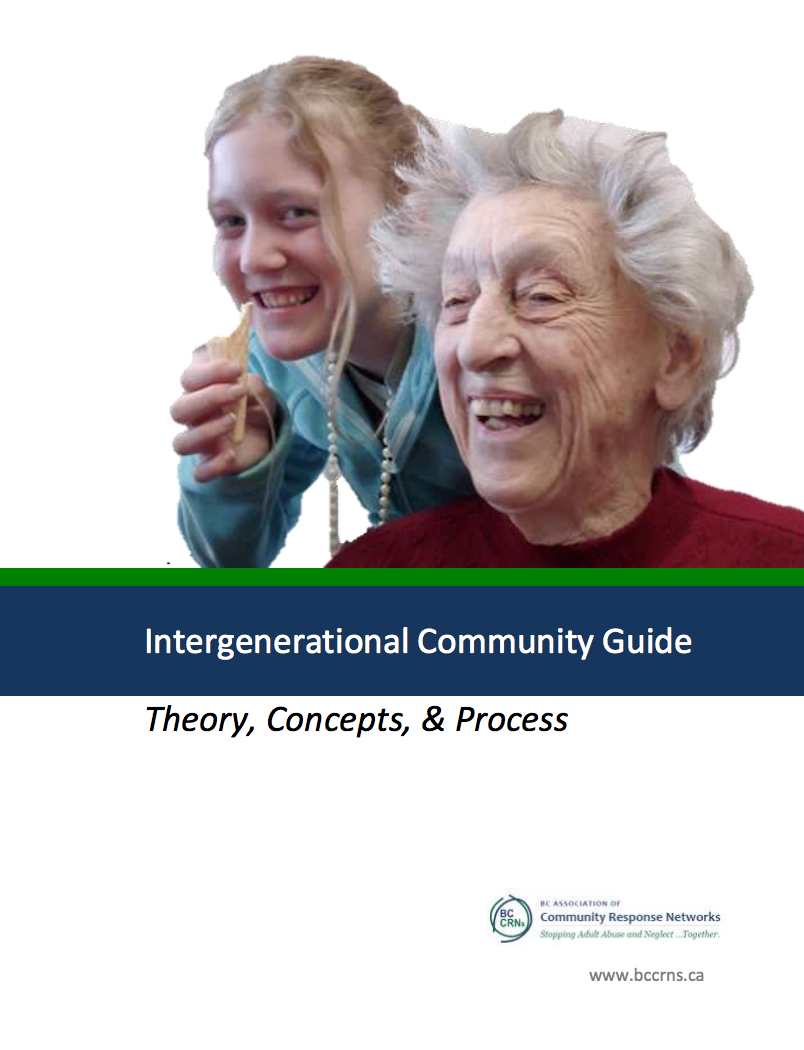 "The Intergenerational Community Guide is intended to provide background information on the nature of intergenerational relationship building, including:
"The Intergenerational Community Guide is intended to provide background information on the nature of intergenerational relationship building, including:
- Intergenerational theory.
- Process for incorporating intergenerational activities into your CRN’s plans.
- Intergenerational activity ideas.
This guide offers a positive approach to combating mistreatment of all ages, and broadens the work of It’s Not Right! Friends, Families, and Neighbours.
How to Use this Guide Use this guide:
- To learn more about intergenerational theory and best practice.
- For ideas on intergenerational activities and how to incorporate them into your CRN’s project plans.
Who this Guide is For?
- Mentors.
- Coordinators.
- Other affiliated community groups. "
The Intergenerational Community Guide, Intergenerational Activities Resources Kit, and supplementary materials were funded by the BC Association of Community Response Networks (BC CRN).
Page 1 of 3

















